Citizens involvement for sustainable food systems
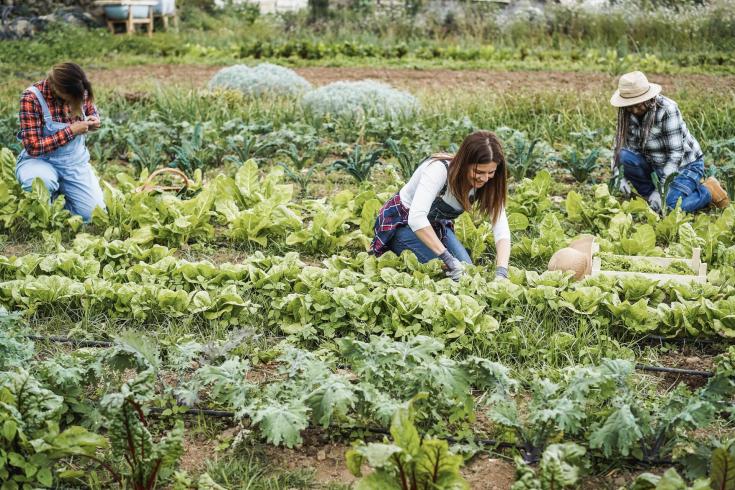
Changing the prevailing patterns of food production and consumption is a great challenge for all regions in the transition towards a sustainable, more circular, and climate-neutral economy.
The Farm to Fork Strategy adopted by the European Commission in May 2020 calls for a sustainable food system that ensures sufficient and varied supply of safe, nutritious, affordable food to all. At the same time, it stresses the need of a more plant-based diet with more fruits and vegetables, not only for reducing the health risks associated with bad eating habits, but also to reduce the environmental impact of the food system.
Interreg Europe projects like CECI and CityZen are delivering on this, thanks to co-designed circular, low-carbon services and urban farming.
Citizens as co-creators of circular and low-carbon services
The LAB University of Applied Sciences (Lahti, Finland) and the Anttilanmäki-Kittelä citizens community are currently running the ERDF funded ASKEL project to ‘co-develop services for sustainable living’, thereby contributing to the implementation of the Päijät-Häme Regional Strategy and Program (2018-2021) and to the vision of Päijät-Häme as a resource efficient region by 2030.
Acknowledging that ‘the circular economy blossoms only through citizens involvement’, the project proponents looked at ways to close the gap between the conception of measures for circularity and emission reductions and their actual implementation by citizens and local communities. In doing so, they found great inspiration from the exchanges with the City of Mechelen (Flanders, Belgium), occurred in the framework of the CECI project.
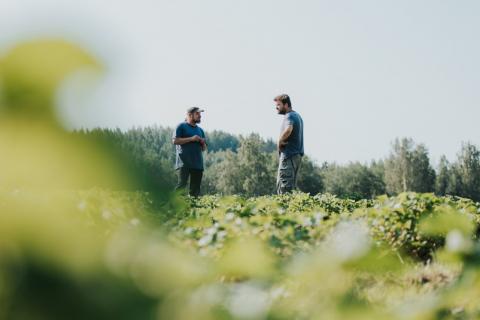
More precisely, learning about the grassroot actions undertaken by the Flemish city in the context of the ‘Stroom – Urban living lab’ to involve citizens and understand from them how to facilitate the mainstreaming of circular consumption models was a crucial factor that triggered the decision of LAB University of Applied Sciences to conduct the ASKEL project. Marjut Villanen, RDI specialist and CECI project manager highlights that: “For us, it was an important reminder that involving residents in planning process and asking residents for their opinions at an early stage, can both promote the implementation of circular economy practices and provide better circular economy services to residents”.
Communities moving towards greener and healthier diets
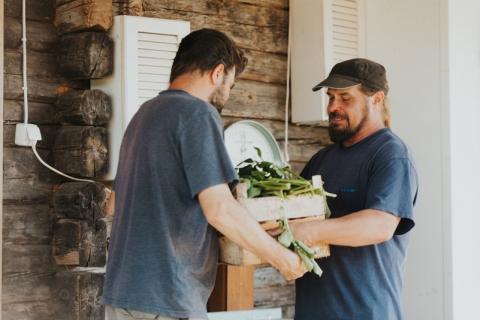
The ASKEL project is based on a holistic approach which allows local businesses to provide new circular and low-carbon services that respond to community needs, from mobility to sustainable housing and nutrition. With regard to the latter, the Finnish Climate Change Panel estimates that 20% of greenhouse gas emissions from households is directly attributable to food consumption patterns. Anttilanmäki-Kittelä residents involved in the ASKEL project are starting to reduce the carbon footprint of their diets. Therefore, the local market trader ‘Torikauppa Pupu’ has started to assemble bags of locally harvested and organic vegetables because a community-based survey and interviews revealed that residents found it difficult to find and prepare vegetarian food.
As it happens with farming cooperative services and ethical purchasing groups, vegetable bags are transported by Torikauppa Pupu to the Anttilanmäki-Kittelä area, where they can be easily picked up. In this case, they also come with ‘easy-to-do’ recipes to help residents engage in environmentally friendly cooking.
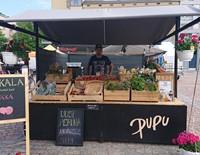
With summer now knocking at the door, the community will be able to fully enjoy this new service. Carita Tanskanen, ASKEL project manager, is enthusiastic about the action being implemented to change food consumption patterns in the community: “Resident-oriented service development takes into account residents’ interests and needs. The aim of the experiment is to show that reducing one's carbon footprint does not complicate everyday life, but even makes it easier. The ‘Vegetable bag’ is a good example of this. It’s a fun and easy way for the residents to add more plant-based food in their diet, and an opportunity for the company to expand its business to new services”.
Urban agriculture: an enabler for community involvement and development
The demand for healthy and locally sourced food expressed by the Anttilanmäki-Kittelä community is not an isolated case. It is indeed part of a growing trend that invests all Europe and urban agriculture. As the CityZen project is clearly beginning to show, it can play central role in responding to this demand, while also creating new business models and local sustainable development opportunities.
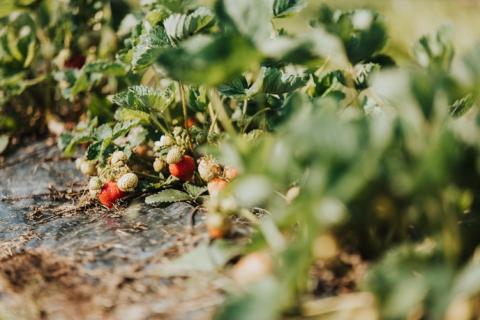
The Municipality of Beja (Alentejo, Portugal), with its Mercado de Santo Amaro, is demonstrating that it is possible to give a market venue to local farmers and their products resulting from urban agriculture without having to comply with burdensome bureaucratic procedures and without intermediaries. The Municipality is actively supporting urban farming not only through this local market but also by allocating small plots of land to disadvantaged households in the community, with the view to increase organic food production, support incomes and create social bonds.
But local growth and consumption of vegetables and fruits is not a prerogative of small communities and middle-sized cities. It is becoming increasingly important also in large metropolitan areas and the case of Sofia (Bulgaria) is really telling in this respect. The Bulgarian Capital City has in fact decided to integrate urban agriculture into its sustainable development strategy and vision for 2050.
The digital map of publicly owned plots of land suitable for urban farming that is being developed is set to help the administration take further steps in the transition towards sustainable food systems. Among others, it will take to ‘the next level’ the ‘Urban Gardening Sofia’ initiative, which has already proved successful in stimulating local food production, disseminating eco-friendly practices, offering environmental education occasions as well as instilling solidarity and a sense of belonging in the community.
For more inspiration and information
- Article about the ASKEL project
- Video about the ASKEL project, first workshop with Anttilanmäki residents
- Good practice, Urban vegetable garden: a circular sharing economy example in Lahti (CECI)
- Impact workshop on Urban farming (CityZen)
